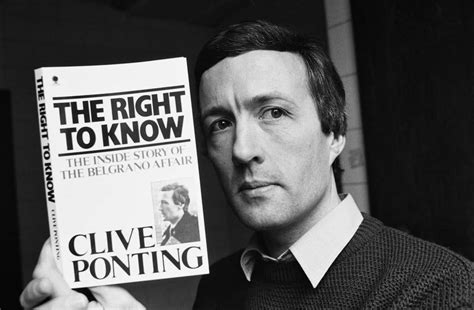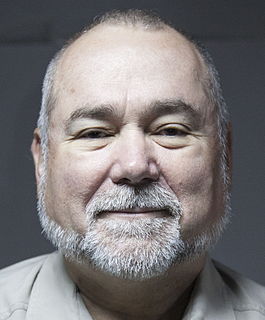A Quote by Heather Brooke
There is a very intense culture of secrecy in Britain that hasn't yet been dismantled. What passes for transparency here would serve any secret society well.
Related Quotes
The meaning of secrecy is very different when the model of love is one of transparency. So to understand the politics of secrecy and revelation, you need to understand the larger culture in which the couple lives and also the culture of the couple itself. What does intimacy mean to them? Where does the couple draw the line between togetherness and separateness? That's what informs you. You always ask, "What would happen if I tell? What would happen if I don't tell?" Sometimes, the partner doesn't want to know.
Most of us live in a condition of secrecy: secret desires, secret appetites, secret hatreds and relationship with the institutions which is extremely intense and uncomfortable. These are, to me, a part of the ordinary human condition. So I don't think I'm writing about abnormal things. ... Artists, in my experience, have very little center. They fake. They are not the real thing. They are spies. I am no exception.
The whole question of pornography seems to me a question of secrecy. Without secrecy there would be no pornography. But secrecy and modesty are two utterly different things. Secrecy has always an element of fear in it, amounting very often to hate. Modesty is gentle and reserved. Today, modesty is thrown to the winds, even in the presence of the grey guardians. But secrecy is hugged, being a vice in itself. And the attitude of the grey ones is: Dear young ladies, you may abandon all modesty, so long as you hug your dirty little secret.
The rules that I shall propose concerning secrecy, and from which I think it not safe to deviate without long and exact deliberation, are, never to solicit the knowledge of a secret,--not willingly, nor without many limitations, to accept such confidence when it is offered; when a secret is once admitted, to consider the trust as of a very high nature, important as society and sacred as truth, and therefore not to be violated for any incidental convenience, or slight appearance of contrary fitness.
There is more interest in what is occurring in technology companies that impact news. Such companies don't have the same sense of transparency about what they do. They have a tradition of secrecy about products, mores and decision-making that goes along with Silicon Valley and intellectual property and technology. You cannot step onto the grounds of Google without signing a Non-Disclosure Agreement. That industrial secrecy mentality exists along with a theoretical sensibility about transparency on the Web, which is different than transparency inside companies that profit from the Web.
The very word "secrecy" is repugnant in a free and open society; and we are as a people inherently and historically opposed to secret societies, to secret oaths and to secret proceedings. We decided long ago that the dangers of excessive and unwarranted concealment of pertinent facts far outweighed the dangers which are cited to justify it. Even today, there is little value in opposing the threat of a closed society by imitating its arbitrary restrictions. Even today, there is little value in insuring the survival of our nation if our traditions do not survive with it.
It has unfortunately now become a habit for so many generations, that it has almost passed into an instinct throughout the Jewish body, to rely upon the weapon of secrecy. Secret societies, a language kept as far as possible secret, the use of false names in order to hide secret movements, secret relations between various parts of the Jewish body: all these and other forms of secrecy have become the national method.
And what if we’d been utterly open? Made jokes about the first wife? What if we’d been that kind of family? Well, I would have been different, surely. But not because I knew the secret. For it wasn’t the secret—the secret that wasn’t a secret anyway—that led to the austerity in our lives. It was the austerity that led to the secret. And what I had been marked by, probably most of all, was the austerity. It had made secrets in my life too. Or silences, anyway, that became secrets. That became lies.
I am a patriot. I have always sought to serve my country, in theory a Republic. Learning that secrecy was evil rather than good was my first step. From there it was a steady march toward open-source everything. Now I see all the evil that secrecy enables in a corrupt Congress, a corrupt Executive, a corrupt economy, and a corrupt society. I see that the greatest service I or any other person can render to the Republic is to march firmly, non-violently, toward open-source everything.
That argument doesn’t make any sense to me. So we want to advance as a society and as a culture, but, say, if something happens to an African-American, we immediately come to his defense? Yet you want to talk about how far we’ve progressed as a society? Well, if we’ve progressed as a society, then you don’t jump to somebody’s defense just because they’re African-American. You sit and you listen to the facts just like you would in any other situation, right? So I won’t assert myself.
































